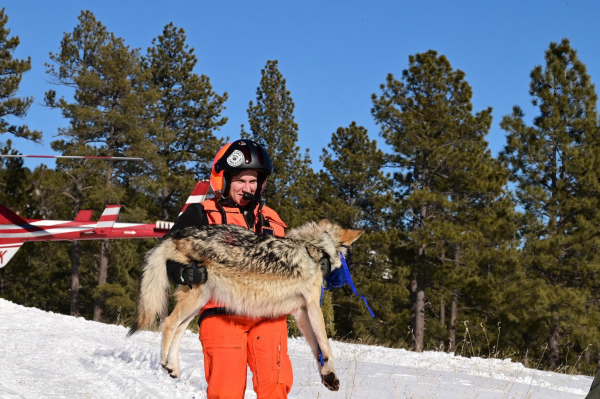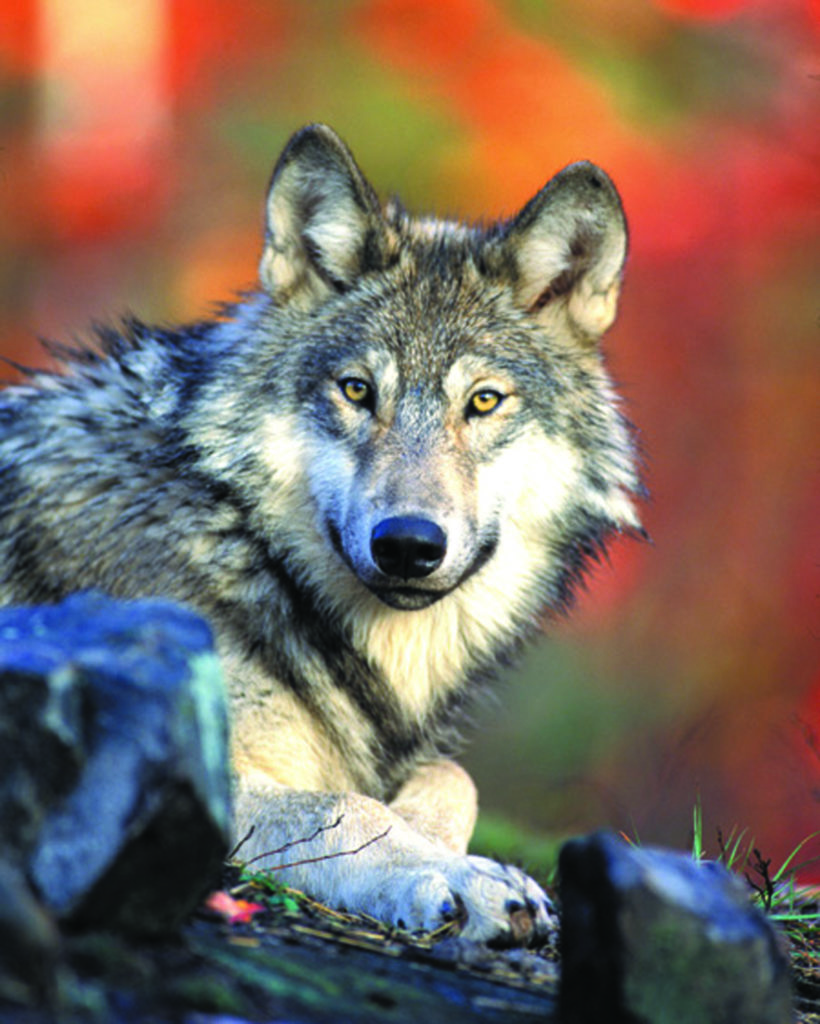Football with Wolves
By Glen Wunderlich
To the dismay of animal-rights extremists, Michigan’s House of Representatives voted 69-39 last week to define wolves as a game species and to authorize the state to designate game species. If this seems like deja vous, there’s a simple explanation: It is. This is the fourth time legislators have addressed wolf-hunting laws.
What has prompted this round of political football relates to a recent ruling by the state appeals court declaring the current law unconstitutional, because an attached-provision providing free hunting licenses to military members was deemed not to be related to scientifically managing wildlife.
Just how we arrived at such a precarious juncture is worth recalling. Michigan completed a Wolf Recovery and Management Plan in December 1997, which was revised in 2008. The Michigan plan recommends managing for a minimum of 200 wolves on the Upper Peninsula. The DNR’s goal is to ensure the wolf population remains viable and above a level that would require either federal or state reclassification as a threatened or endangered species. This sensible plan, however, was rejected by an asinine federal court ruling that placed western Great Lakes states gray wolves back on the endangered species list in 2014, even though agreed-upon recovery goals have been far exceeded. This decision is being appealed.
While the issue of hunting wolves remains in limbo in our region, Michigan’s legislature has paved the way to manage its wolf population according to sound science with the same sustainability that has been built in with every other game animal hunted.
The elephant in the room is the struggle between disaffected voters and those citizens living with the devastating effects of wolf conflicts with livestock and companion/hunting dogs. Never will the residents of the sparsely populated Upper Peninsula garner enough votes to overcome the fallacies of city-slicker voters; if wolves roamed the streets of Detroit, sentiment would certainly be different.
The plight of our Upper Peninsula residents would not be unlike that of our nation, had our forefathers not had the insight to adopt the Electoral College. James Madison worried about what he called “factions,” which he defined as groups of citizens who have a common interest in some proposal that would either violate the rights of other citizens or would harm the nation as a whole. Madison’s fear – which Alexis de Tocqueville later dubbed “the tyranny of the majority” – was that a faction could grow to encompass more than 50 percent of the population, at which point it could “sacrifice to its ruling passion or interest both the public good and the rights of other citizens.”
Little does all of this matter to groups like the Humane Society of the United States, which supports no hunting whatsoever, because it views the lives of animals as being equal to that of humans.
Senator, Tom Casperson, an Escanaba Republican who sponsored two earlier wolf hunting laws overturned by voters in 2014 following petition drives largely backed by the Humane Society of the United States had this to say: “We didn’t have the money to counter, but we still have the problem up there,” Capserson said last week, referencing fears of human safety and livestock attacks in the Upper Peninsula, home to all of the state’s estimated 618 wolves. “It’s severe. Something’s going to happen one way or another.”
“Anti-hunting extremists will never accept a hunt for wolves, no matter how much damage the species does to other wildlife, livestock or pets,” said Evan Heusinkveld, president and CEO of the Sportsmen’s Alliance.
Hats off to the brave politicians who understand the misdirected enemies of common sense.





